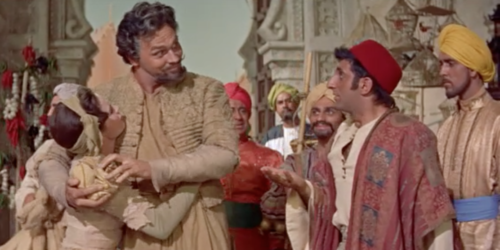In this issue: Proof copies, Kismet, a possum report, The Night Circus, a romance (plus one) for February.
Proof copies
One of the crazy things about publishing is you get a choice, albeit a small one, of where to print your books. I requested proof copies from both Ingram (which feeds bookshops) and Amazon to check the quality.

I’m very pleased with both, but proof copies give me a chance to check things. Like here, the gutter (the part of the page near the middle) is too small, so you have to open the book wide to read it. I’ll be adjusting the margins to be smaller on the outside, bigger on the inside.
The Night Circus
This novel by Erin Morgenstern was my read for this fortnight. Written in 2011, and winning prizes for fantasy fiction, the tale is about the people involved in an unusual circus that is only open at night. There are few acrobats and no elephants. Each tent offers guests a different experience.

I’m glad I didn’t know it was a fantasy before I started it; I read it like literary fiction, because the prose was so evocative. It was like total immersion into a different kind of circus–black and white instead of flashy colors, real magic instead of tacky illusions, and a bizarre and varied circuit of appearances. From the clockmaker to the fortune teller, the characters are deeper and less stereotypical than I expected, with their own talents and desires.
Some suspense was created by having two of the characters, unbeknownst to themselves, set into a competitive game by a surreptitious authority. It’s a competition that won’t end until one of them is killed, presumably by the other or as a result of competing magic. Yet the word “magic” is rarely used in the book; such powers are accepted as belonging to certain people, and their use is to delight rather than harm. An excellent read, more steampunk than fantasy.
Possum report
I name the possums that come into our backyard, of course. When a large gray one appeared, I named him Cassius because he was always hungry (see Shakespeare on this). But once his belly dragged on the ground and I saw multiple tiny tails, I realized he was a she, so she’s Cassie. Two of her kits have stayed in the yard. One is bold and the other shy, but they look alike so I’m not sure which one this is on the left:

It’s Cassie having some water on the right. So this means all the possums in the yard right now are female (they have the pointier faces). Last night, I heard one clicking in the night. That’s the sound adults make to let their kits know where they are, so there may be more out there than I think!
Film review: Kismet
While my days aren’t ruled by what’s on Turner Classic Movies, I do find gems there that are worth giving up an evening of writing. Kismet is one of those gems.
Yes, it’s a 1955 musical, so you get the high-waisted costumes and hair sprayed within an inch of its life. There are songs and dances that only tangentially play into the story, and many poorly disguised sexual entendres are broadly delivered. But it has two aspects that make it quite special.
The first is the source of the story. Hajj the Beggar, his heights of wealth and power alternating with the depths of poverty, seems straight out of the Arabian Nights. Don’t expect any historical “accuracy” — Kismet is set in a “fictional Baghdad” from the tales, not an actual place. This gave the art directors (including Preston Ames, who also did An American in Paris) free reign to create fantasy sets and outrageous costumes.

In addition, the basis of the story was a 1911 play by Edward Knoblock, with the role of Hajj seemingly written for Oscar Ashe, a Shakespearean actor/manager (not unlike my character Cyril Price in Murder at Old St. Thomas’s). On Broadway in 1953, Alfred Drake played the role, and Howard Keel plays him in the film–clearly, an expert who can ham it up is needed!
The second extraordinary thing is the source of the music. Although the lyrics/book were written by Charles Lederer and Luther Davis, the music is primarily adapted from work by Alexander Borodin, a 19th century Russian composer. Songs that became known, such as “Stranger in Paradise”, were based on his musical themes, which makes me smile whenever I hear Borodin on classical music radio. (An American in Paris did something similar, but with the music of George Gershwin, which was very different.)
BOGO at Kobo
In the mood for a bit of historical mystery romance? Kobo is offering a Buy One Get One special through February, and guess what’s on the list?

So you can get A Heart Purloined and another romance book together. Kobo is where I buy my e-books too!
And more!
- Want to read previous newsletters? They’re located here at my website, where you can also find information and buy links to all my books. You can post comments there too.
- Want to read my blog posts on history and writing? They’re on my Lisahistory blog.
